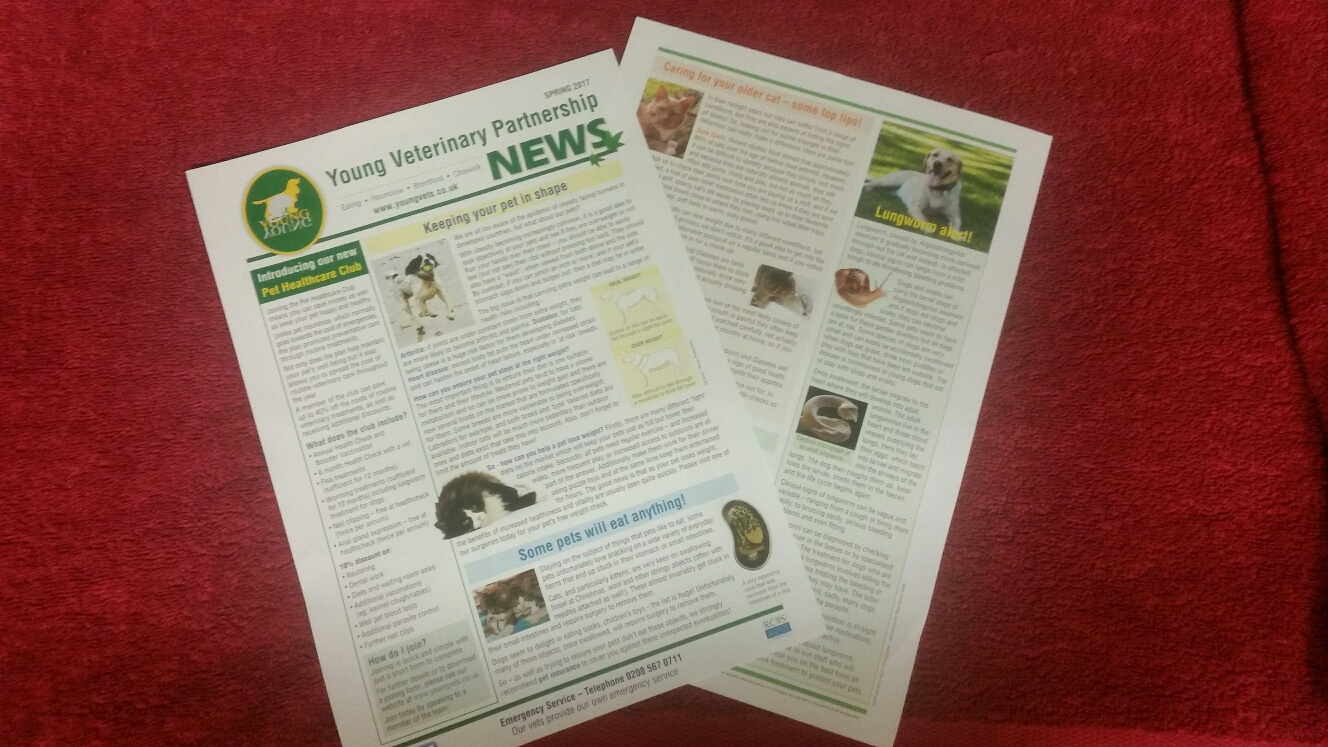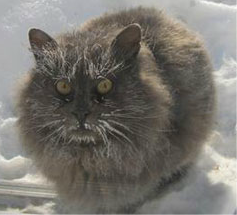
Unusually for this time of year, we are still seeing a large number of flea related problems. Once your central heating is put on, any flea eggs in the house will hatch out resulting in large numbers of fleas appearing. Each individual flea can lay hundreds of eggs in the house which are resistant to virtually all cleaning methods. We strongly recommend that you treat your pet with a spot on flea treatment from the surgery (in our experience supermarket brands tend to be of an inferior quality to our recommended products) and use a household flea spray on the carpets and floors.
Many people find their pets slow down in the colder weather. In middle aged and older animals this may be related to underlying arthritis. With dogs it is usually more obvious as it causes stiffness getting up or limping when walking. Cats however often hide signs of arthritis. They may be reluctant to jump onto surfaces or may not be able to jump as high as they used to.
Weight control is very important if your pets do have arthritis, so try not to give too many treats this Christmas! We have special diet foods for both dogs and cats which are generally much more effective than simply reducing their current food.
Nutritional supplements can be given to both dogs and cats for arthritis, and may be benefiicial. It is important to use high quality supplements as the effectiveness of these can vary greatly. We can advise on which is the best one to use for your pet.
Anti-inflammatory medications may also be beneficial for both dogs and cats with arthritis, either for short term or long term use. Remember NEVER give human anti-inflammatory medications to pets unless directed specifically by the vet. Some human medications are highly toxic to pets (for instance paracetamol is often fatal if given to cats).
Regular exercise is also important for dogs to maintain mobility in the colder months. Frequent short walks may be better than one longer walk.
Finally a reminder that Christmas cake, Christmas pudding, Stollen mince pies and chocolate can all be poisonous to dogs. Poisonous plants include holly, ivy and mistletoe. Pointsettia and lillies are toxic to cats.
Please feel free to call us if you would like advice on any of the issues we have raised. Just click on the link to our website below for details of your surgery. We are here to help.
With festive wishes from all the team at Young Veterinary Partnership. We look forward to continuing to care for your pet in the new year.




